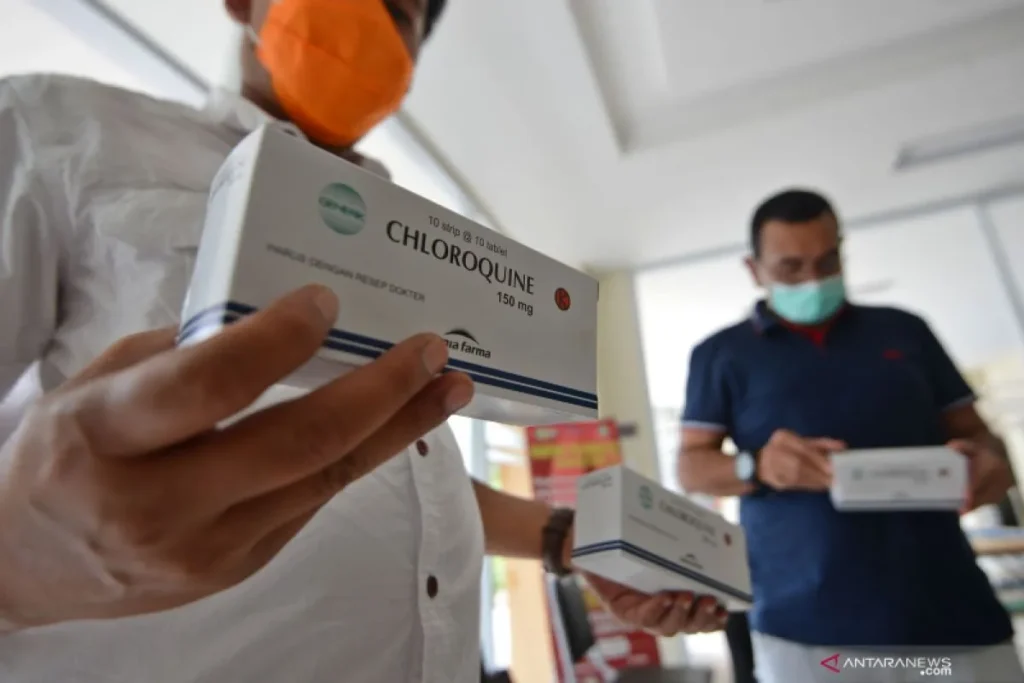12 December 2024 – The world’s largest study on the use of hydroxychloroquine (HCQ) and chloroquine (CQ) to prevent COVID-19 has published results showing moderate protection against the virus. The trial involved over 4,600 participants and found a 15% reduction in symptomatic COVID-19 among those who took the medications compared to those who took a placebo.
Published in PLOS Medicine, the study, called COPCOV, also showed that both drugs reduced other respiratory illnesses and helped people miss fewer days at work due to sickness. Hydroxychloroquine and chloroquine were also found to be safe and well tolerated by participants.

OUCRU Indonesia and OUCRU Nepal took part as collaborators in this study, with OUCRU Indonesia managing the trial in Indonesia and OUCRU Nepal overseeing the trial in Nepal, working closely with local partners in both countries. The overall study was led by the Mahidol Oxford Tropical Medicine Research Unit and conducted across 26 sites in 11 countries, including Benin, Côte d’Ivoire, Kenya, Mali, Niger, Pakistan, Thailand, the UK, and Zambia.
A Challenging Journey
The COPCOV study began in 2020 but faced many challenges at the beginning. Early in the pandemic, there was a false claim that hydroxychloroquine was dangerous, which caused public distrust. As a result, regulatory authorities withdrew their support for the drug and revoked emergency authorizations for its use. This led to many trials, which were looking into its potential for treating COVID-19, being paused or stopped altogether.
Then it became clear later that these drugs did not help severely ill COVID patients. However, their potential to prevent infection was still unknown, keeping the controversy alive.
Despite these setbacks, the COPCOV study resumed and completed its recruitment across 26 sites in 11 countries, involving a total of 4,652 participants by March 2022.
Moderate Prevention against COVID-19 and Other Respiratory Illnesses
The study showed that hydroxychloroquine and chloroquine offered moderate protection against COVID-19. After taking either medication daily for 3 months, participants had a 15% lower risk of developing symptomatic COVID-19 compared to those who took a placebo. Although this level of protection was not as strong as that provided by vaccines, it would have been valuable earlier in the pandemic when vaccines were not yet available.
The study also found that hydroxychloroquine and chloroquine helped reduce the number of respiratory illnesses and days people missed from work because of being sick. On average, participants taking these medications missed 337 days of work per 1,000 people over 3 months, while those taking a placebo missed 441 days. This means the medications helped reduce work absences by about 104 days. This benefit could have been useful in managing outbreaks during the early pandemic phase.
Looking Ahead
Though hydroxychloroquine and chloroquine are unlikely to be used widely now given the availability of vaccines, the findings of the COPCOV study contribute valuable insights into the role these drugs could have played during earlier stages of the pandemic. “These drugs will also remain part of our potential toolkit in addressing new health threats,” explained Prof. Raph Hamers, a co-investigator of the study and Head of Clinical Infectious Diseases Research Programme at OUCRU Indonesia.
Prof. Hamers also stressed how this study highlights the crucial role of high-quality trials in tackling health challenges. “Completing this study was hard in the midst of a pandemic. Good intelligence through high-quality clinical research is essential to fight future epidemics. These drugs will remain part of our potential toolkit in addressing new health threats,” he added.
The study was funded by Wellcome’s COVID-19 Therapeutics Accelerator and involved collaboration across multiple global research institutions. Despite the challenges posed by the pandemic, the COPCOV study has provided valuable insights into early COVID-19 prevention strategies and reinforced the importance of rigorous clinical research in the face of global health crises.



